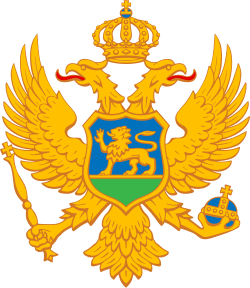 |
|---|
| Constitution |

Visitors to Montenegro must obtain a visa from one of the Montenegrin diplomatic missions unless they are citizens of one of the visa-exempt countries. Visa policy is regulated by Regulation on Visa Regime Act. Where there are no diplomatic or consular representations of Montenegro, visa requiring foreigners may obtain them from (depending on the country) diplomatic or consular representations of Serbia, Bulgaria and Croatia.
Contents
- Visa policy map
- Visa exemption
- Ordinary passports
- Non-ordinary passports
- Substitute visa
- Reciprocity
- See also
- References
- External links
The visa policy of Montenegro is similar to the visa policy of the Schengen Area. It grants 90-day visa-free entry to all citizens of Schengen Annex II. It also grants visa-free entry to citizens of several additional countries – Azerbaijan, Belarus, Kazakhstan, Kuwait, Qatar, Russia, Saudi Arabia, Turkey and Vanuatu.
According to the Law on Foreigners, visitors must have a passport that is valid for at least 3 months beyond the period of intended stay. However, Timatic indicates that visa-exempt nationals need only present a passport valid on arrival to Montenegro.
